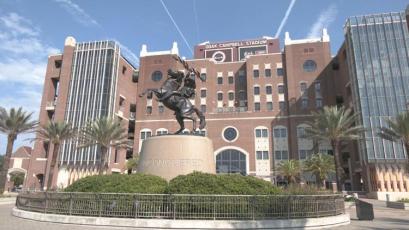
My friend, Kennedy Smartt, was in the hospital a few years ago. I don’t remember why, but I do remember that he’d routinely get out of bed — hospital robe flapping behind him — and go door to door, visiting every patient on the third floor. He’d sit and chat with anybody he could find. He’d listen to them and pray with them. Without fail, he’d find some way to encourage people who’d rather be anywhere else in the world.
For him, the reality of God’s sacrificial love — of His forgiveness and redemption — were a source of irrepressible joy. It never occurred to him that such good news wouldn’t be a comfort to his fellow patients — or to the troubled teens in his community who he mentored and ministered to well into his 80s. The man’s joy was contagious. He brimmed with kindness every day and in every circumstance. Anyone who was in his presence smiled.
Kennedy never understood how or why Christians could sometimes get so ornery. The joy he knew, after all, couldn’t be contained; it was something that had to be shared, not just because it’s real, but because in our day — when anger and incivility rule — joy is Christianity’s most attractive feature. A life of joy, even when you’re in the hospital, is not only magnetic, it’s irrefutable evidence of God’s grace in our lives.
I suspect that many of us, maybe even most, were drawn to the faith by a few winsome people who inexplicably appeared in our path. There was just something about them, some quality that pulled us to them and to the faith that energized them. We know from our own experience, then, that joy draws people in, and that anger drives them away.
That’s why author Daniel Denk worries, or is at least concerned, when Christianity comes across as negative. “It’s as if we’re more interested in forcing our moral values on society than demonstrating the overpowering joy (that naturally attends to Christianity),” he says.
In Denk’s view, our neighbors need to know we want what’s best for them, which means we need to be known for our love not a political agenda. That doesn’t mean that political issues aren’t important. It’s simply acknowledging that Christianity is about God’s grace and redemption; it’s about the renewal and transformation of our lives that follows, and the reality that our worldview (and everyone’s worldview) is shaped by our view of God, of His plan for our lives and His purpose for the world He created.
Consider the lyrics to the world’s most popular Christmas carol. It’s title and first words proclaim, “Joy to the World.” Isaac Watts, its composer, is simply retelling the story told in Luke 2:10-11. “Fear not, for behold, I bring you good news of great joy that will be for all the people. For unto you is born this day in the city of David a Savior, who is Christ the Lord.”
Something new is afoot in the world. As Luke tells us, and as Watts echoes, the Lord has come, and His message is joy. He has come to reign, we learn, but not as a political ruler, nor by force, but in the hearts of people who recognize Him. “Let every heart prepare him room,” Watts urges, because Christ’s rule, unlike Caesar’s or that any modern-day leader, is infused with “truth and grace” (John 1:14).
Denk explains how, as Savior, Christ offers to forgive our sins, deliver us from the bondage of self-indulgence and from the oppression of our self-centered lives. His redemption extends far as the curse is found — to “the very ends of our broken, fallen and suffering world. As Lord, He invites us to follow Him in a life of sacrificial love and in giving ourselves to others. As King, He invites us into a new kind of kingdom, marked by humility, meekness, righteousness, mercy and peace (Matthew 5:1-16).” His coming, therefore, changes everything, and that, Denk says, is “joyfully good news.”
Orthodox priest Alexander Schmemann was thinking along the same lines when he pointed out that Jesus came for the life of the world, that He also died for the life of the world and did so in response to God’s great love for it (John 3:16). “As Creator, then, this world and all who are in it belongs to Him” (Psalm 24:1). As the Good Shepherd, Jesus declared, “I came that they may have life, and have it abundantly” (John 10: 10), which means that He expects His people to flourish, to overflow with joy and blessing and to dwell securely in His care.
That — along with peace, patience and kindness — is what our neighbors need to see.
Richard Doster lives in Fernandina Beach with his wife, Sally. He’s the editor of byFaith, the magazine of the Presbyterian Church in America, and can be reached at ddoster@icloud.com.



